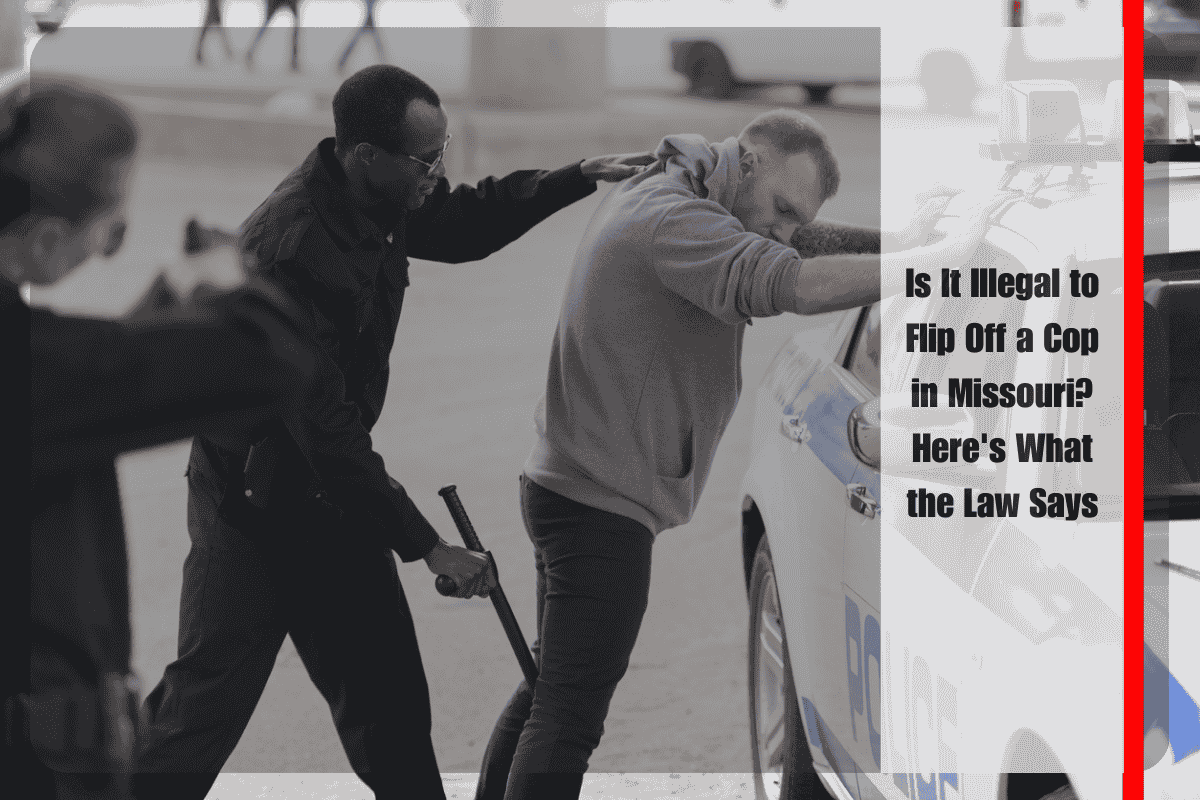Flipping off a police officer, or giving them the middle finger, might seem like a small act of defiance, but it can raise legal questions, especially if it occurs during an interaction with law enforcement. In Missouri, the legality of this gesture depends on the context in which it occurs and how the law is interpreted.
Free Speech and the First Amendment
Under the U.S. Constitution, individuals are protected by the First Amendment, which guarantees freedom of speech. This includes symbolic speech, such as gestures, and in many cases, the middle finger can be seen as an expression of displeasure or protest. In Missouri, as in most states, the First Amendment generally protects your right to make such a gesture, even if it’s directed at a police officer.
However, while flipping off a cop might be legal as an expression of free speech, there are certain conditions where it could become problematic.
When Does Flipping Off a Cop Become Illegal?
While giving the middle finger is often considered a protected form of free speech, it can cross legal boundaries if it leads to behavior that could be seen as threatening or disruptive. In Missouri, a police officer may view the gesture as a provocation, especially if it’s accompanied by other disrespectful or aggressive behavior. Here’s where things can get tricky:
Disorderly Conduct: If the gesture occurs during a situation where it disrupts public peace, creates a scene, or escalates tensions unnecessarily, it could be interpreted as disorderly conduct. Missouri law prohibits public actions that disturb the peace, and if your gesture is seen as part of a broader attempt to incite disorder, it could lead to a charge. For example, if you’re flipping off a police officer during a traffic stop and refuse to cooperate, the officer may interpret your actions as escalating the situation.
Harassment: While flipping off an officer alone may not qualify as harassment, repeated or extreme instances of disrespectful gestures, especially if they are aimed at a specific individual or group, could potentially fall under harassment laws in Missouri. If the gesture is part of a larger pattern of targeting or harassing law enforcement officers, it could lead to legal consequences.
Resisting Arrest or Obstruction: If flipping off a cop happens in the context of resisting arrest or obstructing justice, it could escalate into a more serious legal matter. For instance, if a police officer is attempting to arrest you or perform their duties and you react aggressively by making obscene gestures or refusing to comply, the gesture may be interpreted as resisting or obstructing, which is illegal in Missouri.
The Courts and the Middle Finger
In past cases across the U.S., courts have generally ruled that giving the middle finger is protected under the First Amendment, as long as it doesn’t incite violence or pose a real threat. Missouri courts are likely to view a middle finger directed at an officer as free speech, but only within the context of peaceful interaction. If the gesture leads to further escalation or involves a direct threat to the officer or others, the legal protections around free speech may not apply.
When You Should Think Twice
Even though Missouri law may protect your right to express yourself, it’s important to consider the context and the environment. Flipping off a police officer during a routine traffic stop, for example, could provoke unnecessary escalation or even get you into more legal trouble. The officer may view the gesture as disrespectful, which could influence how they interact with you and how they enforce the law.
In situations where emotions are high, such as during traffic stops, arrests, or protests, it’s always best to exercise restraint. The law generally protects your right to express yourself, but being confrontational or disrespectful to law enforcement can lead to complications that may be more serious than a simple middle finger.
In Missouri, flipping off a police officer is generally not illegal as it falls under the umbrella of free speech, protected by the First Amendment. However, the situation can quickly change if the gesture is part of disorderly conduct, harassment, or obstruction of justice. While your rights are important, it’s always a good idea to be mindful of the context and potential consequences of your actions when interacting with law enforcement.
Sources
[1] https://www.shubinlaw.com/flipping-off-police-officers-constitutional-federal-court-affirms/
[2] https://www.kcur.org/2019-03-15/police-officer-cant-pull-over-driver-for-giving-him-the-finger-court-rules
[3] https://www.lexipol.com/resources/blog/flying-the-finger-leads-to-a-traffic-stop-then-a-lawsuit/
[4] https://lonestar923.com/is-it-against-the-law-to-flip-off-a-cop-or-anyone-else-2/
[5] https://www.avvo.com/legal-answers/is-it-illegal-to-flip-a-police-officer-off–5324427.html












